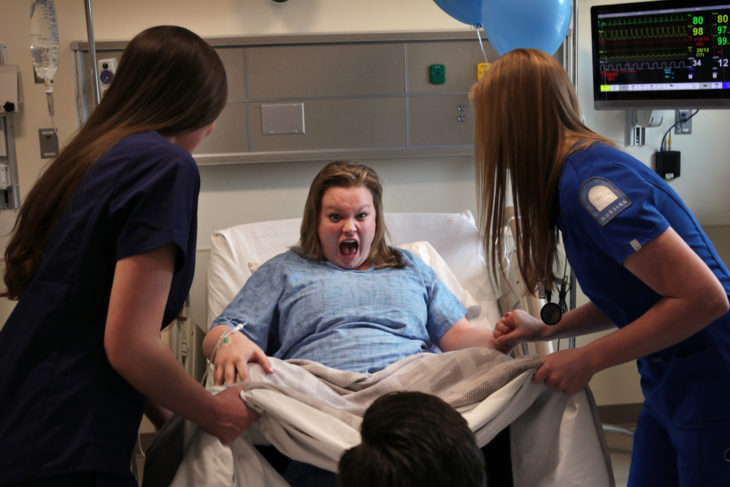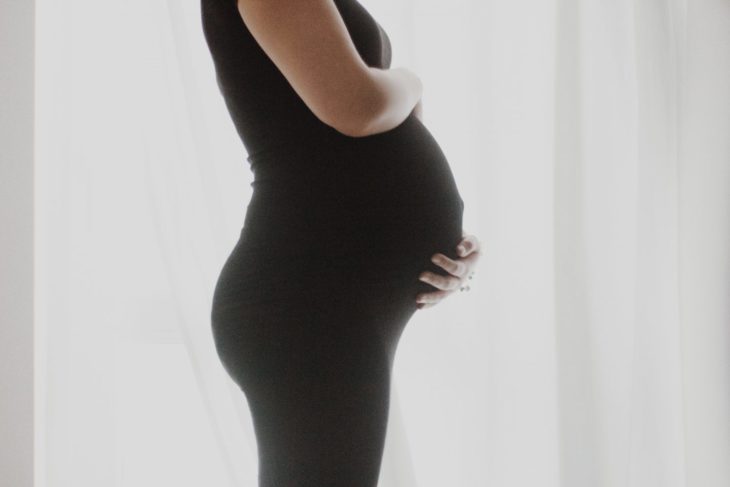Having an abortion does not trigger mental health problems, according to a Danish study of 365,550 teen girls and women who had an abortion or a baby between 1995 and 2007. In fact, what makes a woman most at risk for mental health problems is having a baby, the study published in The New England Journal of Medicine found. None of the women studied had a prior history of psychiatric hospitalization.
Sorry to burst your bubble, anti-abortion extremists.
To hear extremists tell it, having an abortion is so traumatic it could send a woman to Bellevue. At so-called “purposefully mislead pregnant women about the facts of abortion and are currently under pressure by municipalities to place signs at their front door stating they don’t have actual doctors on staff), women are told about an alleged affliction called “post-abortion syndrome.” The anti-abortion propaganda web site, PostAbortionSyndrome.org, claims, “Post Abortion Stress Syndrome (PAS) affects everyone and is a form of post-traumatic stress disorder.”

Source: Proženy
There is one little problem: the American Psychological Association does not recognize that “post-abortion syndrome” exists. According to the data collected on ProChoice.org—which called “post-abortion syndrome” a “myth”—some women are indeed upset after an abortion, but in general, women show a wide array of emotions after terminating a pregnancy. Some feel sadness, some feel relief, some feel scared, and some feel nothing at all. But there is no evidence to suggest that post-abortive women in general feel symptoms similar to PTSD. I encourage you to read more about the “post abortion syndrome” myth here.
To be clear, some women do feel immense loss and sadness after an abortion; I’m sure we all know personal examples of such women. But the Danish study found that of the 84,620 women who had an abortion during the time period studied, a similar rate of women (15 per 1,000 women) who sought psychiatric help after the abortion also sought help before the abortion. It also noted that the demographic group of women who had abortions were more likely to have emotional issues, economic problems and unintended pregnancies—which may indicate, by my analysis, that the abortion had little effect on these women’s reasons for seeking mental health help.

Credit: James Ogden/Shutterstock
Instead, having a baby is what researchers found more often triggered mental health issues amongst the women studied. The rate of women seeking psychiatric help after giving birth, versus before giving birth, was “dramatically higher,” according to The Washington Post. “About seven per 1,000 women got mental health help within a year of giving birth compared with four per 1,000 women pre-delivery.” While postpartum depression—feeling anxious, overwhelmed, sleep-deprived or sad after a baby’s birth—wasn’t specifically addressed in this study, it’s not hard to understand how that may be a factor.
I want to be clear: this study took place in Denmark, which is not the same culture as the U.S. I can’t speak to the Danish culture personally, but I can speak to the intimidation tactics of anti-abortion extremists here in America who stand outside abortion clinics, screaming that women are murderers. Being told by so-called “crisis pregnancy center” “counselors” that you will be traumatized and suffer from “post-abortion syndrome” does not bode well for women, either. Obvouisly, being in a climate inhospitable to making one’s own reproductive choices could make anyone feel like crap after an abortion. Thankfully, though, there is a nationwide, non-political after-abortion counseling hotline called Exhale, which provides counselors for women who need to talk to someone after an abortion.

Source: youbabyandi
I should also note that this study was funded by the Danish Medical Research Council and the Susan Thompson Buffett Foundation, the latter of which supports abortion rights. But the study nevertheless backs up the findings of past studies, which you can read about on ProChoice.org.
I suspect that even in the face of this study, though, anti-abortion extremists will be undeterred.
[Washington Post] [Prochoice.org: The Post-Abortion Syndrome Myth] [PostAbortionSyndrome.org (anti-abortion propaganda web site)] [Exhale: An After-Abortion Counseling Hotline]Original by Jessica Wakeman
